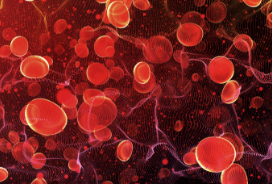The plasma complement C3 is synthesised mostly by the hepatic parenchyma, but bacterial endotoxins also induce a synthesis of complement C3 by monocytes and fibroblasts. This protein interacts in complex ways with antibody-antigen complexes, with one and the other in an independent manner, but with cell membranes also, so as to help the destruction of viruses and bacteria.
An increase in complement C3 concentration in the plasma can be caused by an acute inflammatory phase, a biliary obstruction, or a focal segmental glomerulosclerosis.
A decrease in complement C3 concentration in the plasma can be caused by a genetic deficiency or by an acquired deficiency (acute infections, etc.).

